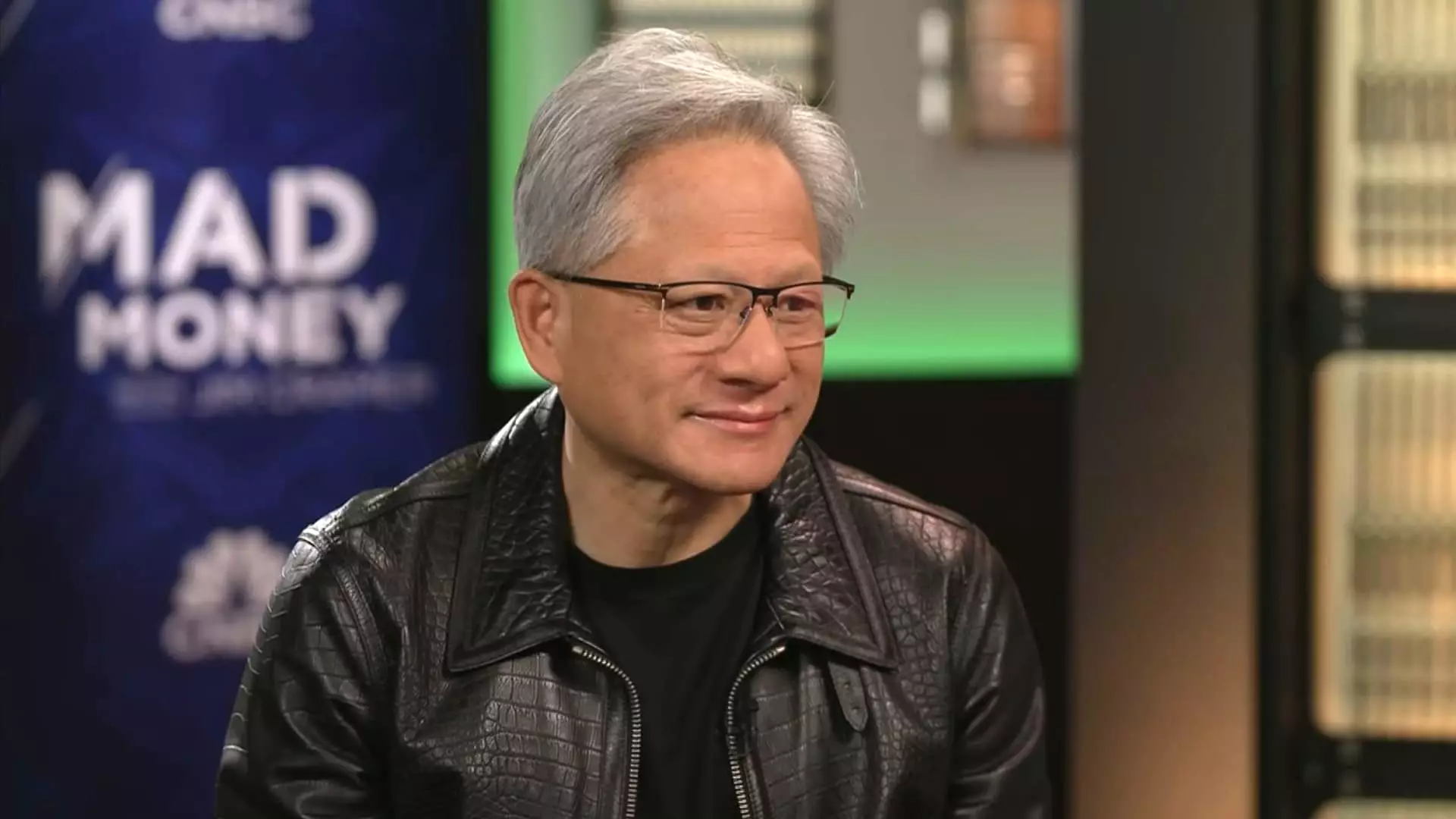Jensen Huang, the CEO of Nvidia, recently made headlines by announcing that the tariffs imposed by former President Donald Trump would not significantly affect the tech giant in the short term. His confident assertion that “the impact of tariffs won’t be meaningful” may come off as optimistic, but is it grounded in reality? The truth is that while Huang champions American manufacturing, the harsh realities of global supply chains and international trade imbalances tell a different story. In a world where trade disputes are escalating, suggesting that tariffs are a mere inconvenience underestimates their long-term implications.
The AI Revolution and Manufacturing Hurdles
Huang emphasizes the importance of artificial intelligence as the “operating system of every industry,” which indeed paints an exciting picture for Nvidia’s prospects. However, the insistence on shifting significant manufacturing to the United States presents unique challenges – both financial and logistical. Although Nvidia is actively collaborating with partners such as TSMC and Foxconn, the complexities of ramping up domestic production should not be glossed over. As much as we’d like to believe that shifting to American-made chips will be seamless, this transition involves significant time, investment, and resources—factors that could delay innovation in a rapidly evolving tech landscape.
A Tumultuous Stock Market Response
Despite Huang’s proclamations of optimism, Nvidia’s stock has suffered considerably, declining more than 20% from its peak. This market reaction reflects anxiety not only about tariffs but also intensified competition from international players. The emergence of Chinese AI labs like DeepSeek, which threatens to democratize access to AI capabilities at lower costs, adds a layer of urgency that Nvidia simply cannot ignore. Huang’s dismissal of this competitive threat appears naive at best and dangerously dismissive at worst.
Complicated Trade Relations
The unfolding trade war, which Huang seemingly brushes aside, has real consequences for American companies. Washington’s increased restrictions on tech exports to China have particularly affected Nvidia, whose revenue from the region has plummeted by around 50%. In a global market where access and partnerships can dictate success, this restriction not only diminishes Nvidia’s immediate profits but, more critically, signals a worrisome trend of protectionism that could stifle technological innovation.
Facing the Future: Navigating Uncertain Waters
As Huang remains enthusiastic about the potential for onshore manufacturing and AI development, it’s essential to remember that optimism cannot replace concrete strategies. Commitment to domestic production must coincide with addressing the myriad competitive pressures originating from abroad. Navigating these complex waters requires not just the rhetoric of positivity but robust plans that recognize the obstacles ahead—obstacles that Huang, in his eagerness, seems keen to overlook. The journey ahead for Nvidia is fraught with uncertainty, challenging the narrative that all will be smooth sailing amid turbulent economic tides.

